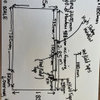Dirty Grout? The truth behind tile maintenance.
dts builders
9 years ago
last modified: 9 years ago
Featured Answer
Comments (6)
myperfectadvice
9 years agodts builders
9 years agoRelated Discussions
Bathroom floor tile colour - pls help!
Comments (36)Hi Kirsty, could you please advise the colour of your vanity and whether it is a custom made one and if not, could you let me know its name and where you bought it. Also, what is the colour of your floors tiles and where did you get them from. (I have come to the conclusion that charcoal/dark grey tile plus a much lighter grey tile plus white on some walls plus a timber vanity or timber accessories in bathroom , plus white (or close to it) below sink counter top is the way to go for a beautiful bathroom. The trick is figuring out exactly what proportion of each colour to use and where to put them for each particular layout....See MoreBathroom Tile Problem - nails rusting & stains coming through grout
Comments (8)Attach are photos. I have been told by 3 different bathroom / plumbing co's it is not mould. They have scraped out some grout, put new grout in & the dark stain has come through again. The builders warranty expired Nov 2015. The builder passed away about a year ago but his wife is still alive & she was co-builder / co-vendor. But, as I'm out of warranty not sure if I have a leg to stand on. It has been suggested that the experts scrape out all the grout, silicon the bit where the stains are & re-grout & maybe the rusty nail stain doesn't break through the silicon / new grout. Can the wrong nails be used in wet rooms that has therefore rusted? Is there normally special nails for wet rooms? Has anyone heard of a 10 year builders warranty - standards & tolerances - for major defects; possibly like this? Thank You. It's very annoying I must say....See MoreRepair grout or install shower base?
Comments (10)Are your floors a concrete slab or timber ? My previous home had a similar problem, but was on a concrete slab, And we had wall damage in the hall. A company like Megasealed will come and fix this in a day. They will remove the existing tiles, re water proof, and relay tiles. And also regrout the entire shower recess. If the paint in the hall is not bubbling, then you may be correct that the damage is in the floor, not the walls. And since you have not used the shower recess for a time, then it is the ideal time to get a professional in to redo the shower base. With reference to removing the hob, this may be making the job an expensive full renovation. As the hob would be built up from the floor, the tiles would not be underneath, therefore you would be having to take up that hob to the concrete/timber base, then the domino reaction may take into effect. New floor tiles, new levelling of floor etc etc....See MoreWhat do you think of this grouting job
Comments (13)This article may help you have a discussion with your tradesman that grouted your bathroom. Did they use the correct grout and was it mixed correctly. tylecurator.com.au/picking-the-right-grout/ Grout discolouration Discolouration is patchiness or a chalky appearance of grout and can be caused by a few things but mainly incorrect mixing. Because grout is sold as a powder and mixed with water before being applied it relies on the person mixing the product to get the ratio right and to mix thoroughly. It can also happen if too much water is used during clean up so it’s important to go with an experienced tiler who knows the right method. Grout cracking In my opinion, nothing looks worse than cracked grout. This is where you’ll really notice the difference between a regular grout and a high-quality grout. Grout is cementitious but high-quality grouts have less fillers and more polymer to strengthen and fortify, significantly reducing the likelihood of cracking. If your grout cracks, eventually you’ll need to remove the grout and reapply it — costing you time and money so it’s best to get it right the first time. To prevent cracking, it’s also important to make sure you’re tiling onto the right type of surface as movement underneath tiles will almost always result in cracking — even if a high-quality grout is used. What is Epoxy grout? You may have heard the term epoxy grout used recently and there’s plenty of reason why it’s creating buzz — a new type of grout that is virtually stain-proof, easy to clean and less likely to crack. So what is epoxy grout? Most grouts are cement-based and by nature, absorb water which is why they can stain, discolour and crack. Epoxy grouts are high performance grouts made from epoxy resins and a filler powder that make it extremely durable. Although epoxy grouts are designed for situations that require strict standards of hygiene, such as hospitals, or chemical and physical resistance, such as around pools, increasingly we’re seeing this type of grout used in residential areas — particularly for kitchen splashbacks and in showers. While earlier formulas of epoxy grout were difficult to work with and only had limited colour options, new products such as Ardex EG15 are changing that with many colours to choose from, including light, mid and dark greys. Imagine never having to worry about mould, stains or discolouration in the shower? Or oil and tomato stains on your kitchen splashback? This is when you would ask your tiler to use an epoxy grout. You should know that this product, being a high-performance product, is more expensive but ‘Do it once and do it right’....See Moremyperfectadvice
9 years agodts builders
9 years agodts builders
9 years ago

Sponsored







User